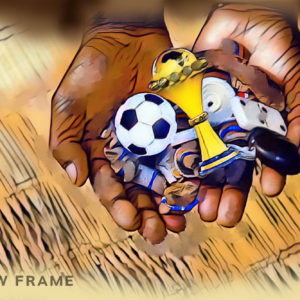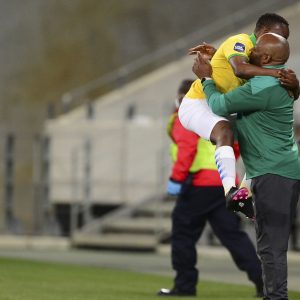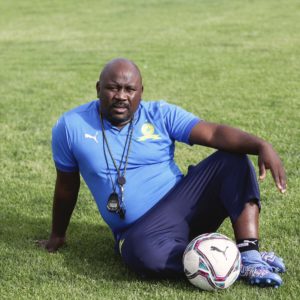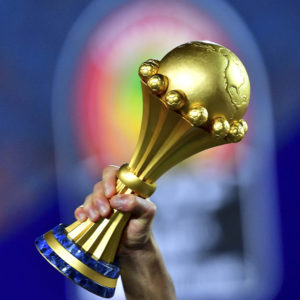The most important semifinal of Aliou Cissé’s career
The Senegalese coach has got his team to the penultimate round of the Afcon. He needs a victory amid criticism that he lacks the qualities to take the side any further.
Author:
2 February 2022

In his seminal work The Prince, Niccolò Machiavelli famously dwelt on the question whether it is better for a leader to be loved than feared. The latter, he wrote, is safer because “love is preserved by the link of obligation which, owing to the baseness of men, is broken at every opportunity for their advantage; but fear preserves you by a dread of punishment which never fails”.
The Italian’s passage does not apply to Senegal coach Aliou Cissé, however. The love that his players and supporters have for him does not stem from a “link of obligation”, but rather from his authenticity, poise and honesty.
Cissé, 45, is a descendant of a long line of nobility in the Ziguinchor region. On both sides of the family his ancestors have occupied dignified religious roles in the Lower Casamance area of Senegal, a strategic enclave located in southwestern Senegal between The Gambia and Guinea-Bissau.
Modou N’Diaye, a cousin and childhood friend of the manager, says Cissé often goes to visit his grandfather’s grave in the family village. “The last time he was here, he cried hot tears. Almost before each campaign for the national team, if his schedule allows it, he comes here to formulate prayers.”
Related article:
With his feet on the ground and a strong attachment to his roots, Cissé was a unanimous nomination for the Senegal job after the West African nation suffered a humiliating exit in the group stage of the 2015 Africa Cup of Nations (Afcon).
Following a 2-0 defeat against Algeria, credible reports emerged that French coach Alain Giresse feared some of the players in the Senegal dressing room, acquiescing to their demands in order to start matches.
“Will you resign or not?” the Senegalese press asked Giresse repeatedly in the post-match press conference. “I’m at the end of my contract,” he stubbornly repeated on at least three occasions.
After that, says Khalilou Fadiga, one of Cissé’s former teammates from the glorious 2002 team that shocked the world and qualified for the quarterfinals of the Fifa World Cup, he and former Senegalese international El Hadji Diouf were the very first to advocate for Cissé’s being hired.
Leadership qualities
Another former teammate of his, Alassane N’Dour, says Cissé is the “incarnation of leadership. Leadership is him. Now, looking back, it was obvious he had the qualities to be a great coach. He knows how to speak to his players and galvanise them. Although he is withdrawn and introverted, when the match starts, he transforms and is animated.”
On being hired by the Senegalese Football Federation, Cissé made his intentions clear. “I have a lot of ambition for Senegal, but it can mostly be summed up in one word: win and win again,” he said in a televised interview.
Cissé has kept his word. He has stood on the touchline for 70 matches, scoring victories in 44, drawing 17 and losing only nine. During this time he has led Senegal to the quarterfinals of the 2017 Afcon, the 2018 Fifa World Cup and the final of the 2019 Afcon.
Related article:
For the past 38 months, Senegal have held the number one spot in Africa in the world governing body Fifa’s men’s rankings, a continental record.
Yet, as harsh as it seems, Cissé’s seat was slowly getting warmer prior to the 2021 Afcon despite the obvious success of his managerial stint. Some critics at home believe that the dreadlocked leader has taken his side as far as he can. Though he is a fantastic manager, they say, he is a limited tactician.
Following successive defeats to Algeria in the 2019 Afcon, numerous African football pundits felt that Cissé was outclassed as a coach by his friend and rival Djamel Belmadi.
“Sometimes we don’t really see the ‘Cissé touch’ when his team plays,” says Babacar Diarra, a journalist working for BBC Afrique in Senegal. “Critics say that he just trots 11 players out there and the quality of the Senegalese squad does the rest.”
Not perfect
Indeed, on paper, Senegal are the best team in Africa and perhaps even one of the best in the world. Sadio Mané, Idrissa Gueye, Kalidou Koulibaly, Édouard Mendy … the team sheet reads like that of any top European club competing in a prestigious Uefa Champions League match.
Chérif Sadio, a director of development at Casa Sports, a local club based in the city of Ziguinchor, says if his compatriot is not tactically proficient, it is partly owing to some gaps in his coaching experience.
“He did not have the opportunity to train a club before taking the reins with the national team and you can see that with some of his tactical decisions. Nevertheless, a lousy or bad coach could have never achieved such consistent results,” says Sadio.
Related article:
After six years on the job, however, there is one major hole in Cissé’s CV – a trophy. Senegal have advanced to an Afcon final on two occasions and Cissé had a pivotal role in both losses, once as a player and once as a coach.
As a player, he missed the fifth and decisive penalty against Cameroon during the 2002 Afcon final, dashing Senegalese hopes and dreams. The 2019 final was also a tight match, separated by an unfortunate deflected shot scored by Algeria striker Baghdad Bounedjah in the opening minutes.
Make or break
The calendar year 2022 will eventually define Cissé’s legacy at home. Winning an Afcon title is the first priority, as it would relieve an entire nation of what many believe is a “mental block” from which Senegal suffer in tournament finals.
The Teranga Lions are well on their way to hitting that mark, having reached the semifinals. They are heavily favoured to march past a young Burkina Faso outfit.
Related article:
Should he succeed and help Senegal to their first ever continental title, and perhaps another World Cup berth later in the year, Cissé could very well become the first African coach to take up a position in one of Europe’s top five leagues at a midsize club – or more.
“Having once discussed it with him, he told me that he does not rule out the possibility of coaching elsewhere, but his dream is to help Senegal win as many trophies as possible,” Sadio says.
The stage is set and all the tools are at his disposal. Now is the time for Cissé finally to step up and deliver for Senegal when it matters most.




